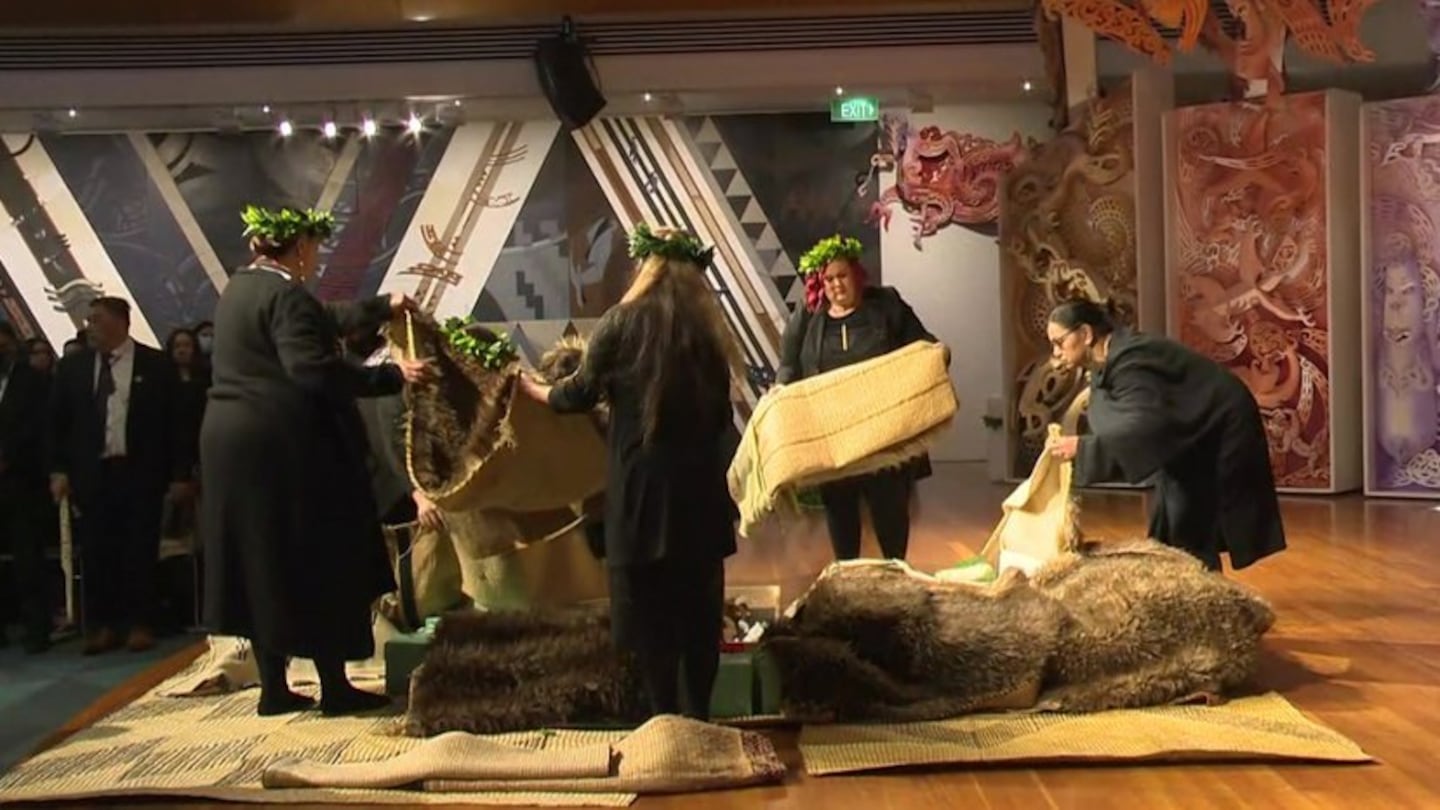The sounds of overwhelming grief welcomed more than 100 kōimi T’chakat Moriori to Te Papa today.
"This is a combination of their hopes and aspirations. It's a great day that finally with a meeting of the hearts and minds the karāpuna and the tupuna are home," said Te Papa Kaihautū, Arapata Hakiwai.
The 111 remains include skulls, mandibles, other parts of the body and a small number of complete skeletons, which were taken from Rēkohu for collection, trade and research.
This repatriation also includes almost 200 karāpuna (Moriori ancestral remains) from Otago University, Tūhura Otago Museum, Canterbury Museum, Whanganui Regional Museum and Auckland War Memorial Museum.
It has been a long process for the descendants who have waited 15 years for the safe return of their ancestors.
"I know with the Natural History Museum, Te Papa first touched base with it in 2007.
The time has come for karāpuna to return home.
'It's not appropriate."
"It's taken that long but it has been a long, rewarding process and it doesn't matter how long it takes as long as the results are the right ones."
Though these taonga have returned to Te Papa Tongarewa, they will not be displayed. Instead, they will be put in a place off-limits to the public.
Hakiwai says, "in the past, we've had our ancestors toi moko being displayed and just recognising what our ancestors represent and that's just insulting and an affront not only to us, but to many first nations and indigenous people.
"So, whenever we find that there are Moriori ancestors remaining on display, we approach those museums and we just work with them saying 'it's not appropriate' and we just want to convey that in all cases they've taken them down."
The work to repatriate ancestors continues, in the hope that more tribes around the country can have their ancestral remains safely returned.
"We think there's probably 50 to 100 to come back from New Zealand and overseas but who knows there could well be others in other private collections. Wherever they are like the one that came from the Whanganui Regional Museum that they brought here.
"Every single one of them is important because each one of those ancestors at one time were living, breathing, loving, sentient human beings," said Maui Solomon.

